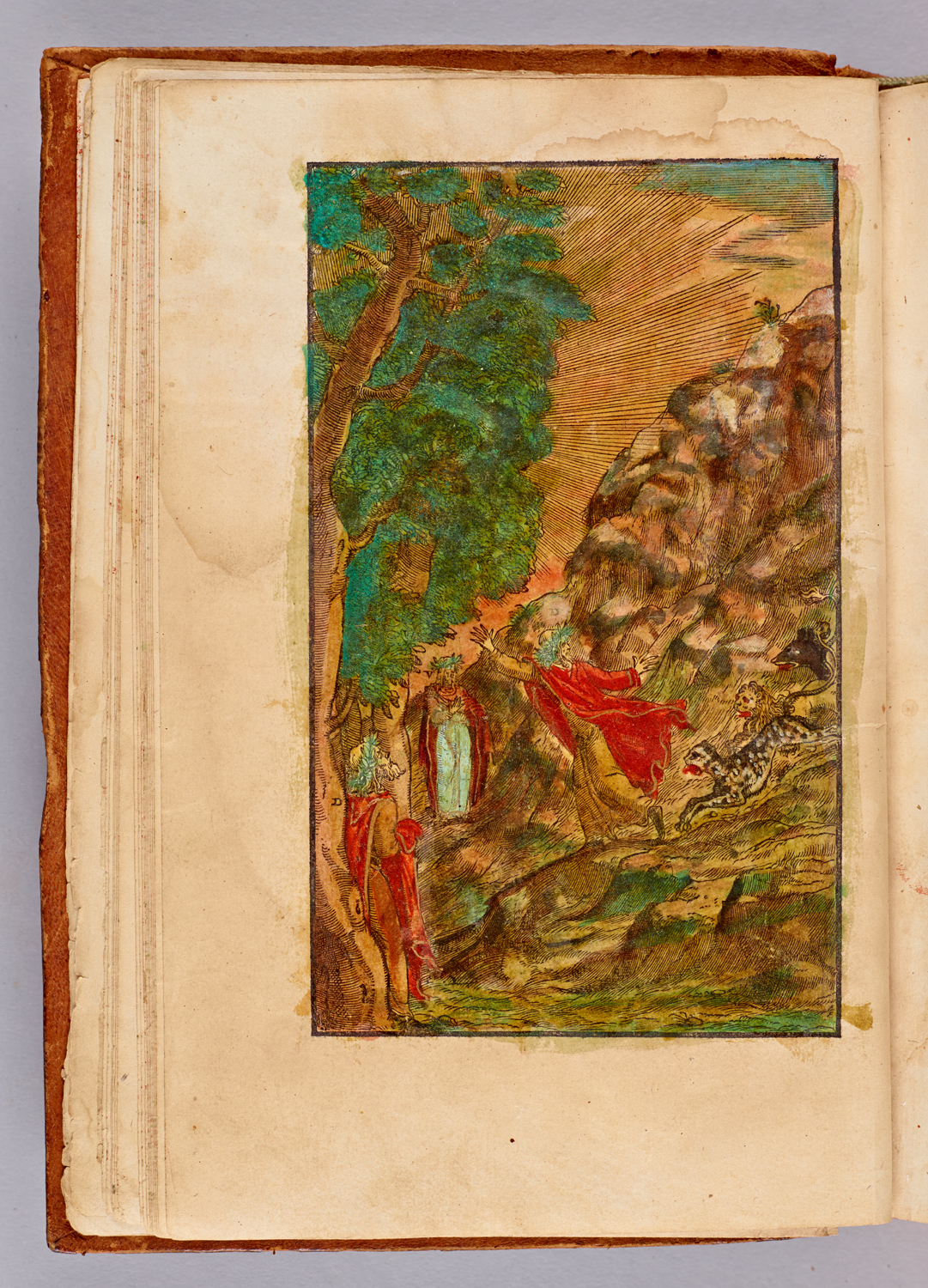
Overview of Canto I
Dante was lost in a dark forest. When morning came, he tried to ascend a mountain but three beasts, a leopard, lion and she-wolf, obstructed his path. These three beast represent three specific sins (most likely lust, pride and greed respectively). Electing to descend the mountain, Dante finds Virgil, the poet who wrote the Aenid. Virgil offered to guide Dante (the Pilgrim) through Hell and Purgatory, but will have another, Beatrice, guide him on to Heaven.
Lost
One of the most humiliating things that ever happened to me was that I became lost in a dark forest during Drill Sergeant school about 15 years ago. I left my tent by 20 paces or so. It was pitch black in the middle of the night. The next thing I knew I was all over the perimeter trying to find my way back. It was very confusing to be lost in a dark forest. Left or right, back or forward; any direction seemed like the right way to go.Desperation set in eventually. Doubt and various fears creeped in. I couldn't discern anything. I reached out to navigate through the trees and hoped for something that felt familiar. Other soldiers acted as my guide that night.
Those soldiers were a good source for me. Virgil was a good source for Dante. But I can't finish this post without warning you of the deceptions that exist in the dark forest. The predators seek you. The piped pipers lead you astray.
But one thing you can do when your lost is that you can ground yourself. Take time to understand where you are and where you're going. Reach out and be prepared for whatever's coming. Take careful steps and remember how you got there in case you need to fall back. This starts within, which is why Dante the Pilgrim is prevented from ascending the mountains by beasts representing sin.
Below are a couple of scholarly links. One includes two translations as well as the original Italian text. The other includes summaries and details that helps you better understand what's going on in the poem. Canto I is actually a prologue. Dante's Invocation of the Muses starts in Canto II. It's made a bit more obvious by Dante writing 100 Canti for the entire work. Inferno has 34 while Purgatory and Paradise have 33. The number 100 was considered perfect at the time. 33 is quite significant as well. We'll move on to Canto II next week. Thank you for reading and if you haven't already please subscribe.